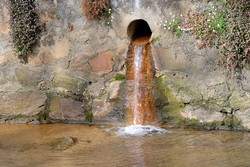New technologies to treat emerging pollutants
Emerging pollutants have been the subject of many European research projects, which have resulted in new technologies and practices for their treatment, monitoring and detection. The DEMEAU (Demonstration of promising technologies to address emerging pollutants in water and waste water) project facilitated the uptake of knowledge, prototypes and practices from earlier EU research, enabling the water and wastewater sector to combat emerging pollutants. DEMEAU exploited four groups of promising technologies from previous research projects: managed aquifer recharge (MAR), hybrid ceramic membrane filtration, hybrid advanced oxidation processes and bioassays. Exploitation of results was achieved through research collaborations with universities, institutes, small and medium-sized enterprises, and policymakers. Water utilities were also involved and will act as the launch pad for these new technologies, thereby ensuring their wider uptake. Project partners designed a new MAR authorisation system that supports the European water directives while minimising energy consumption and costs. A toolbox was created to support operators and water authorities. The consortium also developed an improved reactor design for ceramic membranes for drinking water production and hybrid ceramic membranes-based processes for grey water treatment. In addition, researchers demonstrated sustainable and cost-effective oxidation technologies for removing micropollutants from drinking water and wastewater. A decision-making tool for implementing oxidation technologies was developed based on water quality evaluation at the regional level. Bioassays for water quality assessment were validated and a protocol produced for the implementation of bioassays in the water monitoring programmes of water utilities. To ensure a lasting legacy, project outcomes were disseminated to water utilities, technology providers, policymakers and standardisation bodies. DEMEAU engaged the general public through an awareness-raising video that explains the costs involved in treating drinking water and wastewater. DEMEAU successfully exploited the results of previous European research projects in the field of water technologies to address the challenge of emerging pollutants in the water cycle. The project overcame both technological and non-technological barriers to foster a broader impact and greater market penetration, thereby helping to make the EU a leader in this field.
Keywords
Emerging pollutants, water, wastewater, DEMEAU, managed aquifer recharge, ceramic membrane, oxidation, bioassays



